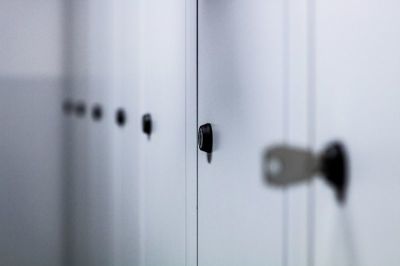Students, Parents Appeal Court Decision Allowing Girls to Undress in Boys' Locker Rooms

A group of students and parents have appealed a federal district court decision that was in favor of Boyertown Area School District in Pennsylvania, which allows biological males to use girls' locker rooms, and vice versa.
"School officials have a duty to protect the privacy and dignity of all students," said ADF Legal Counsel Christiana Holcomb on Monday. "Because the Boyertown District has failed to fulfill its responsibility, we are asking the appellate court to protect their rights while the lawsuit proceeds. This is important not only for our clients, but for all students within the Boyertown Area School District."
ADF and Independence Law Center attorneys filed the notice of appeal to the U.S. Court of Appeals for the 3rd Circuit on Monday.
The Doe v. Boyertown Area School District case concerns one male student who involuntarily encountered an undressed female student while changing in the boys' locker room.
The incident followed the high school's decision to allow transgender students to use restrooms and locker rooms that correspond with their gender identity, starting the 2016-2017 school year.
The student, who has been joined by three others in the suit, said he has "experienced embarrassment and humiliation, both in terms of being viewed and viewing a student of the opposite sex in a state of undress and because of the stigmatization and criticism he received from other students and adults, fueled by the administration's policy and actions."
He also noted that because of the school policy, he fears future embarrassment when it comes to meeting students of the opposite sex in the bathroom.
U.S. District Judge Edward G. Smith of the Eastern District of Pennsylvania said in his decision in August that the claims have no merit, however, siding with the school's explanation that it is only providing accommodation for transgender students.
Some LGBT groups, such as Eliza Byard, executive director of Gay, Lesbian & Straight Education Network, said that the lawsuit could have been avoided if the school had made arrangements for students who felt uneasy with the new bathroom policy.
"The existence of a transgender person living their life appropriately at school cannot constitute sexual harassment," Byard told NBC 10 News.
"It might make another student uncomfortable and in that case, there is a common sense legal remedy of providing separate accommodations to the student who feels uncomfortable."
But Independence Law Center Legal Counsel Jeremy Samek, who argued before the court, stated that students and parents are "rightfully concerned that the district's new policy permits a student to unilaterally violate the privacy rights of other students based simply on that student's beliefs about gender."
"A person's privacy rights are theirs and theirs alone. Beliefs about gender shouldn't be a license to violate privacy inside boys' or girls' locker rooms and restrooms. That defeats the very purpose of sex-separated facilities."




















